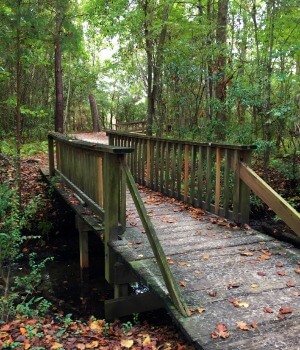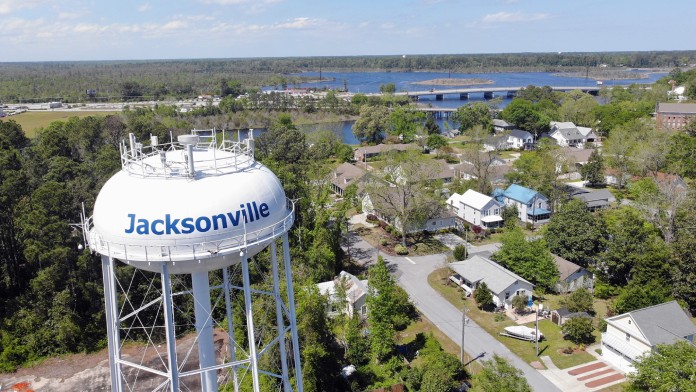Alcohol and Drug Use Statistics in Jacksonville, NC
As deaths by overdose continued to increase through 2021, Jacksonville residents have seen a similar rise as a health crisis.2, 4 The Jacksonville Department of Public Safety, the Castlight Health Report, and Onslow County published the following statistics:2,5,6
Onslow County deaths attributed to alcohol increased by more than 20% from 2019-2020.
In Jacksonville, from 2017-2019, there was a 58% increase in child abuse and neglect, with many cases due to alcohol or drug use.
From 2017-2019, there was a 106% increase in Jacksonville crisis intervention calls.
Levels of Care for Addiction Treatment Settings
There are various types and settings of drug rehab, varying in structure and intensiveness.
Professional Detox
If you are dependent on alcohol or drugs like opioids, quitting can lead to uncomfortable (and even dangerous) withdrawal symptoms. Inpatient and outpatient detox can help manage your withdrawal symptoms and reduce the risk of relapsing into substance use.
Inpatient Care
Residential rehab is the most structured and intensive setting, providing a peaceful and serene environment to jumpstart your recovery, away from everyday stressors. You live at the treatment center during treatment and receive a variety of therapies and interventions.
Partial Hospitalization Programs (PHPs)
A step down from inpatient rehab, you attend several hours of treatment per day and return home during non-treatment hours (typically the evening or nighttime). This is a great option for someone who needs a high level of care but doesn’t want to stay overnight at a residential facility.
Intensive Outpatient Programs (IOPs)
Less intensive than PHP, an IOP involves several hours of therapy per week, often visiting the treatment center between three and five days each week. This is often used as a step-down option from inpatient or PHP, though some people’s first point of contact with substance abuse treatment may be an IOP, especially if their addiction is mild or they want to continue working or attending school while recovering.
Standard Outpatient
The least intensive treatment option, standard outpatient, involves one to two hours of treatment per day for one or two days per week. This option has the least oversight and supervision, which increases the risk of relapse; however, highly motivated people with a strong support system may find this level beneficial.
Aftercare
Support doesn’t end once you complete your drug rehab program—it’s important to receive aftercare, which can provide you with ongoing support and encouragement in the form of 12-step groups, non-12-step groups like SMART Recovery, ongoing therapy, sober living homes, and more.
Financing Drug and Alcohol Rehab in North Carolina
If you are worried that you won’t be able to afford drug and alcohol rehab, check out these strategies for financing addiction treatment:
Private Insurance
If you have private health insurance through work or purchased from the Healthcare Marketplace, you can use it to cover the cost of drug and alcohol rehab, either partially or fully, depending on the treatment program you choose.
North Carolina Medicaid
North Carolina Medicaid is a government program providing health insurance coverage for low-income families and individuals. If you have Medicaid, you can use it to cover substance abuse treatment services, although you’ll want to make sure to find a rehab that accepts this form of payment.
Medicare
If you have North Carolina Medicare, you can use it to pay for the cost of drug and alcohol treatment services; however, you’ll want to make sure to find a facility that accepts Medicare.
TRICARE in North Carolina
North Carolina is in the East Region for TRICARE and provides coverage for drug and alcohol addiction treatment and rehab for military personnel, retirees, and their families.
Sliding Scale Rehabs
If you need financial assistance, you can seek out a sliding scale rehab, which charges a reduced price based on your income.
IHS-Funded Drug Rehabs
The Indian Health Service funds various alcohol and drug treatment centers that provide free care to Indigenous people with substance use disorders.
Getting Around and Getting to Know Jacksonville, NC
 Situated along the New River, Jacksonville was originally established as a marine base and now houses the largest concentration of U.S. Marines in the world, accounting for the youth of its population.2 Aside from the Marines, Jacksonville’s proximity to water has made it the center of commerce in Onslow County. With growing populations and increasing tourism, the city cares for its residents by providing numerous parks and green spaces, year-round community festivals, and a massive recreation center open to all.3
Situated along the New River, Jacksonville was originally established as a marine base and now houses the largest concentration of U.S. Marines in the world, accounting for the youth of its population.2 Aside from the Marines, Jacksonville’s proximity to water has made it the center of commerce in Onslow County. With growing populations and increasing tourism, the city cares for its residents by providing numerous parks and green spaces, year-round community festivals, and a massive recreation center open to all.3
If you want help traveling and looking for alcohol or drug rehab in Jacksonville or just visiting a loved one in addiction treatment, there are a few things you might want to know:
- Jacksonville is 99 miles from Raleigh, NC, and 197 miles from Charlotte, NC.
- Charlotte and other large cities are easily accessible by plane from the local Albert J Ellis Airport (OAJ), just 14 miles from the city.
- Wilmington International Airport (ILM) is the largest airport nearby and 52 miles away from Jacksonville.
- Amtrak makes Jacksonville accessible by train by offering a train-to-bus connection from Wilson, NC, to Jacksonville, NC.
- Travel into Jacksonville is also possible by bus through Greyhound.
- Travel throughout the city can be done through Jacksonville Transit. Four main city routes connect at various locations and serve the city’s most popular destinations.
- There are more than 17 miles of trails and greenways for recreation or travel throughout the city.
- Uber, Lyft, Ola, Didi, and taxi services are all available in Jacksonville with minimal wait times.
- Options for lodging include several hotels on Western Boulevard, as well as many AirBnB and VRBO options throughout the city.
- There are many options to enjoy the city. The river and beach Memorial Gardens, and a variety of restaurants and entertainments are available for all ages.
North Carolina Drug and Alcohol Laws
Below are some important North Carolina laws related to substance misuse:1
North Carolina Recovery Courts: Non-violent offenders can go to court-ordered drug rehab instead of serving jail time.
North Carolina Good Samaritan Overdose Law: Witnesses to overdoses can receive immunity from prosecution when they call 911 to save a person’s life.
Resources
- City of Jacksonville. (2022) Census.
- Comprehensive Opioid, Stimulant, and Substance Abuse Program. (2019). North Carolina: City of JAcksonvillle, Jacksonville NC COAP 2019.
- City of Jacksonville. (2022). About Jacksonville.
- CDC (2022, May 11). U.S. overdose deaths in 2021 increased half as much as in 2020 – but are still up 15%.
- The city of Jacksonville. (2022). Opioid education.
- North Carolina State Center for Health Statistics. (2022, October). Vital statistics death certificate data. Injury Epidemiology and Surveillance Unit. InjuryfreeNC.



